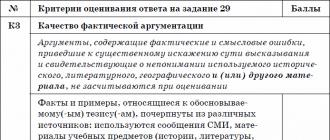Daikon nutritional value. Japanese daikon radish: calories, norm per day, benefits and harms to the human body. Daikon for the elderly
Daikon is a kind of radish, known in our country under the name "white radish" or "sweet radish". And from Japanese, this name is translated as “big root”, which is not surprising, because some varieties of daikon grow up to 60 centimeters in length, and their weight can reach several kilograms. The ancestors of the daikon are from Far East Asia; the Japanese cultivated this product, bringing out many varieties of various shapes and sizes.
Today, daikon radish is grown in all countries of the world, including Russia, but it has received the greatest recognition in Japan. Residents of the land of the rising sun include it in the diet as often as Russian potatoes.
Interesting! Daikon is the most common vegetable carving material. From dense and snow-white pulp surprisingly natural chamomiles, roses, lotuses turn out.
Composition of the product
Nutritional value of 100 g:
- Proteins: 1.2 g
- Fat: 0 g
- Carbohydrates: 4.1 g
- Ash: 0.8 g
- Starch: 0.5 g
- Mono- and disaccharides: 0.2 g
- Water: 95.4 g
- Dietary fiber: 1.4 g
Vitamins:
- Vitamin PP (NE) (PP): 2.08 mg
- Vitamin H (H): 19 mcg
- Vitamin E (TE) (E (TE)): 2.1 mg
- Vitamin C (C): 30 mg
- Vitamin B9 (B9): 18 mcg
- Vitamin B6 (B6): 0.3 mg
- Vitamin B5 (B5): 2.2 mg
- Vitamin B2 (B2): 0.2 mg
- Vitamin B1 (B1): 0.8 mg
- Vitamin A (RE) (A (RE)): 10 mcg
- Vitamin PP (PP): 2.2 mg
Minerals:
- Selenium (Se): 0.8 mcg
- Manganese (Mn): 0.75 mg
- Copper (Cu): 10 mg
- Iodine (I): 2.1 mcg
- Zinc (Zn): 0.18 mg
- Iron (Fe): 0.84 mg
- Sulfur (S): 5 mg
- Chlorine (Cl): 7 mg
- Phosphorus (P): 28 mg
- Potassium (K): 280 mg
- Sodium (Na): 16 mg
- Magnesium (Mg): 9 mg
- Calcium (Ca): 27 mg
White radish is considered a low-calorie product - 100 grams contain only 21 calories, and the same 100 grams can provide the human body with almost half the daily requirement of vitamin C. In addition, scientists have found that daikon contains an enzyme that promotes the absorption of starchy foods.
The composition of the daikon includes all the macro and microelements necessary for the human body, such as:
- potassium,
- calcium,
- selenium,
- magnesium,
- iron,
- phosphorus,
- copper,
- sodium.
As well as all vitamins, PP, beta-carotene, which strengthens, and phytoncides - which retard the development of microbes and bacteria. From this it follows that the daikon also has excellent antiseptic and antibacterial properties.
The rich content of all of the above elements suggests that regular consumption of daikon helps to maintain the health of the lungs, kidneys and liver, and normalize blood composition. The nutritional value of daikon is also due to the content of enzymes in it - beneficial enzymes that are involved in metabolism, thereby helping food to be quickly absorbed and eliminating stagnation of the gastrointestinal tract.
Important! This product successfully fights against cardiovascular diseases and premature aging. All this is due to the high content of antioxidants that remove from the body. A positive effect is possible only with prolonged and regular use of the root crop.
The benefits of daikon are determined by the content of fiber in it, which helps to cleanse the body of toxins and excess fluid. That is why nutritionists recommend that everyone who strives for an ideal figure and a healthy lifestyle include white radish in their diet every day. In it, unlike the usual radish or radish, there is no mustard oil at all, which allows you to use it as a separate dish or use it as part of salads, sauces and even desserts. It is worth noting that the leaves and shoots of white radish can also be eaten, however, due to the short shelf life, they can be rarely found on sale. Daikon greens can only be pampered by amateur gardeners.

As a prophylactic, daikon is used during and even during irradiation. Some scientists claim that eating raw daikon can cleanse the body of radiation. External use of white radish is possible as compresses, rubbing and lotions. The beneficial substances contained in daikon have a beneficial effect on the health of hair and nails, accelerate the healing of wounds and relieve age spots.
Possible harm to daikon
Despite the fact that daikon radish has a lot of useful properties, there are still contraindications to its use. People with diseases such as stomach and gout should eat root crops with great care.
Important! In case of chronic diseases of the kidneys and liver, as well as in case of a serious metabolic disorder, consultation with a specialist is mandatory.
Daikon can also cause harm with excessive use. A large amount of radish eaten at one time leads to irritation of the mucous membrane of the digestive organs, as well as to flatulence (accumulation of gases in the intestines).
Traditional medicine recipes
The beneficial properties of daikon have revealed themselves not only in cooking - this root crop has found its place in folk medicine.
 Rubbing for rheumatism
Rubbing for rheumatism
- Mix daikon, honey and vodka in a ratio of 3:2:1, add a little salt, strain.
- Rub sore joints with the resulting mixture after bath procedures.
- The liquid remaining after straining, take orally 30-50 grams.
Canned daikon for anemia
- Grate the same amount of radishes, carrots and beets.
- Put the resulting mass in the oven, simmer for 2-3 hours at a minimum temperature.
- Take before meals (10-15 minutes before) three times a day.
Important! For children, the dose is reduced to a teaspoon. The course of treatment is at least 2 months.
Daikon fresh rich in vitamins and minerals such as: vitamin B1 - 53.3%, vitamin B2 - 11.1%, vitamin B5 - 44%, vitamin B6 - 15%, vitamin C - 33.3%, vitamin E - 14%, vitamin H - 38%, vitamin PP - 11%, potassium - 11.2%, manganese - 37.5%
Benefits of Fresh Daikon
- Vitamin B1 is part of the most important enzymes of carbohydrate and energy metabolism, providing the body with energy and plastic substances, as well as the metabolism of branched-chain amino acids. The lack of this vitamin leads to serious disorders of the nervous, digestive and cardiovascular systems.
- Vitamin B2 participates in redox reactions, increases the susceptibility of color by the visual analyzer and dark adaptation. Inadequate intake of vitamin B2 is accompanied by a violation of the condition of the skin, mucous membranes, impaired light and twilight vision.
- Vitamin B5 participates in protein, fat, carbohydrate metabolism, cholesterol metabolism, the synthesis of a number of hormones, hemoglobin, promotes the absorption of amino acids and sugars in the intestine, supports the function of the adrenal cortex. A lack of pantothenic acid can lead to damage to the skin and mucous membranes.
- Vitamin B6 participates in the maintenance of the immune response, the processes of inhibition and excitation in the central nervous system, in the transformation of amino acids, the metabolism of tryptophan, lipids and nucleic acids, contributes to the normal formation of red blood cells, maintaining a normal level of homocysteine in the blood. Insufficient intake of vitamin B6 is accompanied by a decrease in appetite, a violation of the condition of the skin, the development of homocysteinemia, anemia.
- Vitamin C participates in redox reactions, the functioning of the immune system, promotes the absorption of iron. Deficiency leads to friable and bleeding gums, nosebleeds due to increased permeability and fragility of blood capillaries.
- Vitamin E has antioxidant properties, is necessary for the functioning of the gonads, the heart muscle, is a universal stabilizer of cell membranes. With a deficiency of vitamin E, hemolysis of erythrocytes and neurological disorders are observed.
- Vitamin H participates in the synthesis of fats, glycogen, amino acid metabolism. Insufficient intake of this vitamin can lead to disruption of the normal condition of the skin.
- Vitamin PP participates in redox reactions of energy metabolism. Inadequate vitamin intake is accompanied by a violation of the normal state of the skin, gastrointestinal tract and nervous system.
- Potassium is the main intracellular ion involved in the regulation of water, acid and electrolyte balance, is involved in the processes of nerve impulses, pressure regulation.
- Manganese participates in the formation of bone and connective tissue, is part of the enzymes involved in the metabolism of amino acids, carbohydrates, catecholamines; necessary for the synthesis of cholesterol and nucleotides. Insufficient consumption is accompanied by growth retardation, disorders in the reproductive system, increased fragility of bone tissue, disorders of carbohydrate and lipid metabolism.
A complete guide to the most useful products you can see in the application
An alternative to bitter radish is daikon, which has become a sought-after and popular product not only because of its excellent taste, but also because of its unique medicinal properties.
Calorie content, chemical composition and benefits of daikon
The calorie content of 100 g of the product is 21 kcal. These indicators allow you to introduce a vegetable into the diet for problems with overweight and dieting.
Nutrition value table per 100 g of product:
Daikon is a real find for everyone who is interested in proper nutrition. This vegetable has a perfectly balanced biochemical composition. A valuable root crop contains substances that are especially valued by leading nutritionists:
In addition to the listed vitamins and minerals, white radish contains antioxidants, pectins, phytoncides, glycosides, enzymes that can bring enormous benefits to the human body.
The healing power of the root crop is explained by the content of valuable natural components in its composition, which will not only preserve health for many years, ensuring a high quality of life, but will also become excellent helpers in various diseases, since:
- promote immunity and general strengthening of the body;
- strengthen the heart and blood vessels, eliminate the symptoms of arrhythmia, tachycardia;
- allows you to activate the work of the digestive system;
- control blood sugar, bringing it to optimal values;
- stimulate the excretion of toxins, slags and other dangerous substances from the body;
- remove radiation atoms from human organs;
- included in numerous diet programs to combat overweight;
- allow you to reduce the amount of food consumed and quickly feel full;
- provide assistance to patients with cholelithiasis and urolithiasis;
- restore the nervous system and normalize sleep;
- block the reproduction of harmful bacteria and microbes in the body;
- increase concentration and stimulate brain activity;
- relieve symptoms of a hangover;
- beneficial effect on the condition of the skin, hair and nail plates.
Therefore, the inclusion of daikon in the daily diet will help in the cure and prevention of many diseases.
Useful properties of white radish for men and women
The medicinal properties of the root crop help both sexes.
- Due to the antibacterial and antiviral effects of phytoncides, people are less exposed to respiratory diseases during seasonal epidemics.
- Regular intake of a vegetable is the key to success in intimate life, as it enhances potency and increases sexual desire in men.
- Low calorie content and lack of fat allows you to successfully use radish for weight loss. Eating it before meals allows you to eat foods with a minimum amount of calories, as the radish provides a feeling of satiety for a long time.
- Women actively use white radish for cosmetic purposes, as it has a beneficial effect on women's health and beauty: it whitens the skin of the face, prevents the appearance of early wrinkles, and strengthens hair roots.
- Representatives of the strong half of humanity radish helps to relieve the symptoms of a hangover.
When used correctly, daikon will only benefit women and men. And by listening to advice and your own feelings, you can easily improve your well-being with the help of this unique root crop.
Possible harm to the body
Along with a lot of positive characteristics, a unique root crop has certain restrictions for use: 
- At the time of exacerbation of chronic gastrointestinal diseases, it is better not to experiment, but to abandon the product for a while.
- It is necessary to use the root crop with great care for people with liver and kidney diseases.
- In case of a serious metabolic disorder, it is necessary to consult the attending physician.
- Excessive consumption of a vegetable can provoke flatulence, irritation of the intestinal mucosa and indigestion due to the huge amount of fiber that is difficult to digest in the body.
Therefore, before you show interest in the daikon, you need to take into account the existing contraindications to its use. Proper use is the key to the assimilation of all vitamins and minerals necessary for the normal functioning of the body, without harm to health.
Healing power and contraindications to the use of daikon juice
Vegetable juice is not inferior to the root crop itself in terms of the number of healing properties, because:
- guarantees assistance to the body in the fight against infections caused by various fungi, bacteria and viruses;
- helps to cope with diseases that affect the respiratory tract;
- removes excess fluid from the body, and with it dangerous substances;
- activates the activity of the gallbladder and liver;
- reduces the severity of pain and accelerates the healing process of wounds, cuts and scratches;
- promotes relaxation and restful sleep.
To quickly reduce weight, you need to drink 50 ml of the drug on an empty stomach every day for 14 days.
Daikon juice is contraindicated:
- people with stomach and duodenal ulcers and impaired metabolism;
- women during pregnancy and lactation;
- patients with severe heart disease and renal failure;
- those who have impaired functioning of the musculoskeletal system.
The benefits and harms of juice depend on the way it is used. Subject to all the rules of admission, the drink can solve many health problems.
Product selection and storage rules
In order for the taste to please, and the beneficial properties to be maximized, it is important to choose the right root crop. To evaluate the quality of the product when buying, you need to pay attention to several important points:
- the peel should be intact, without damage and have a kind of glossy sheen;
- when pressing on the root crop, elasticity should be felt, otherwise the product may turn out to be rotten inside;
- at the cut point, the pulp of a quality product should be moist and uniform.
When choosing other special requirements for the root crop, there are no.
It is necessary to store radishes with green leaves in the refrigerator for no more than 3-5 days; without foliage, the storage period can be increased to 1 month.
Also, the product can be stored in a cellar for up to 3 months at a temperature of 1 to 5 degrees Celsius, laid out in even rows in wooden boxes and sprinkled with river sand on each layer.
The best recipes for culinary dishes
The fragrant aroma and pleasant taste of the root crop attract supporters of a healthy diet, who use the sweet radish in its raw form and add it to various dishes. The vegetable is of great value in its raw form, since high temperature destroys valuable elements, reducing the number of medicinal properties of the plant.
Daikon recipes are characterized by a variety of ingredients, which makes the diet more complete for maintaining good health.
Juice "Health"
Juice should be used as a vitamin complex that increases the body's defenses. 
Ingredients:
- sweet radish root - 1 pc.
Wash the radish root well and peel it from the peel and the remains of the tops. Cut into pieces and squeeze the juice with a juicer. Drink the product only fresh, as with long storage it loses its healing qualities. It is advisable to use the drink in its pure form without all sorts of additives. But if you don’t really like the taste of juice, then you can add apple or carrot juice, and also dilute it in half with water.
vitamin salad
This simple and delicious dish can be pampered at least every day.
Ingredients:
- radish root - 1 pc.;
- vinegar 3% - 3 tbsp. spoons;
- parsley or celery;
- salt and sugar to taste.
Grate the vegetable, add salt, sugar and vinegar to taste. Mix the ingredients well and pour greens on top. This salad will be a great addition to fish and meat dishes. 
Daikon salad with carrots
An unusual combination of ingredients makes the dish unique. Fresh vegetables are complemented by sweet dried grapes and spicy celery. A green apple completes the composition of taste.
Ingredients:
- daikon - 100 g;
- apple - 1 pc.;
- carrots - 1 pc.;
- raisins - 30 g;
- celery - 1 stalk;
- vegetable oil, salt.
Rinse the raisins well, add water and leave for 30 minutes. Peel the vegetables and chop them using a grater. Grind celery. Combine the prepared products and season with oil, salt. 
Vegetarian salad
This salad is a great combination of fruits and vegetables. The walnuts give the dish its unique taste. The dish is slightly spicy and has a slight sweet aftertaste.
Ingredients:
- daikon - 300 g;
- green apple - 2 pcs.;
- carrots - 2 pcs.;
- walnuts - 50 g;
- vegetable oil - 3 tbsp. spoons;
- white wine sauce - 1 tbsp. a spoon;
- herbs, salt, pepper.
Remove the peel from apples, carrots and radishes. Cut the apples, removing the core and cuttings. Then grate the prepared components using a coarse grater. Dry the nuts a little in a frying pan without oil, then let them cool and chop coarsely. Make dressing using oil, vinegar, herbs, spices. Then season the salad and decorate the dish with nuts.
By experimenting with the composition, you can create your own symphony of tastes and aromas from a healthy vegetable:
Daikon, thanks to its pleasant taste, unique aroma, low calorie content, high content of biologically active substances and a minimal list of contraindications, not only diversifies the daily diet, but also perfectly supports the health of the body.
In contact with
Daikon (Japanese radish) is a root crop of the plant of the same name, which is one of the varieties of the common radish. It is used for culinary purposes due to a very weak pungent taste and moderate aroma, due to the low content of mustard oils in the pulp.
calories
100 grams of daikon contains about 18 kcal.
Compound
The chemical composition of daikon is characterized by a high content of carbohydrates, proteins, fiber, vitamins (A, B5, B9, C, E, H, PP), copper, sulfur, chlorine, phosphorus, potassium, sodium, magnesium and calcium.
How to cook and serve
In Eastern Europe, daikon is better known as white radish or sweet radish. This vegetable, as a rule, is eaten fresh, being chopped on a grater, with sunflower oil and salt. Daikon is widely used in Japanese cuisine. The succulent roots of the plant, peeled from a thin surface layer, are used not only in the preparation of salads, but also in a number of other stews and fried seafood and meat dishes, as well as soups. No less popular in cooking is dried daikon. It is used in the preparation of stews of meat and mushrooms.
How to choose
A quality daikon is distinguished by a flat and smooth surface, which should not contain any defects. Another selection factor is juicy tops with green leaves. You should also pay attention to the size and weight of the vegetable. The best choice would be a medium-sized daikon, fairly heavy and firm to the touch.
Storage
Daikon should be stored in the refrigerator and eaten within the next two weeks.
Beneficial features
With a low calorie content, the daikon has a very rich chemical composition in vitamins and minerals, which leads to the presence of many useful properties in this vegetable. In particular, its regular use will strengthen the immune system, have a bactericidal and bacteriostatic effect, improve the functioning of the gastrointestinal tract, prevent the occurrence and development of a number of diseases of the cardiovascular system, as well as diabetes. In addition, the inclusion of daikon in the diet will have a positive effect on the condition of the skin, bones, hair, nails, teeth, mucous membranes of the eyes and mouth.
Use restrictions
Individual intolerance, thyroid dysfunction, chronic diseases of the digestive system during an exacerbation, urolithiasis, gout.





